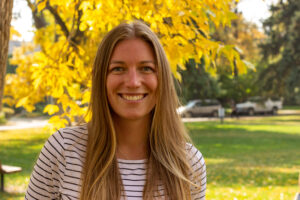This blog is published in support of the recently funded EdgeNet research network.
To learn more be sure to catch them (online or in person) for their Edgy Matters paper sessions and launch party at the 2023 RSA Conference, Ljubljana, Slovenia: Edgy Matters 1: Experiencing and constructing ‘left behind-ness’ in the periphery and Edgy Matters II: Dynamism and change in the periphery.
At 6:00 pm on Thursday, June 15th, 2023, there will be a ‘Drinks on the Edge’ launch party in Ljubljana at Cutty Sark Pub (Knafljev prehod 1, 1000 Ljubljana, Slovenia).
EdgeNet – A Focus on the Periphery
Recently, the Regional Studies Association awarded a research network grant to EdgeNet: an international and interdisciplinary research network focused on peripheral regions–and why they matter. The network aims to advocate and amplify impactful research on the diverse places that are ‘non-core’ or on the ‘edge’ of core activities, including but not limited to rural, peri-urban, post-industrial, de-populating, and remote areas. That too many places have not mattered for too long calls for edgy new research on, from, and for peripheral places and regions.
Taking up this charge, two EdgeNet members took a little field trip through the ‘country roads’ of West Virginia to explore the complexity of one of the US’ most peripheralised regions. If Appalachia and the communities living and working therein are a by-word in how rural peripherality is imagined in the US, West Virginia is the core of that by-word.

West Virginia epitomises many of the motivations behind EdgeNet. In popular and political discourses, Appalachia in general and West Virginia in particular have become symbolic of systemic regional problems. We may know that this whole region ‘suffers’ (note what we are doing with language here) from post-industrial decline and the ‘loss’ of the hugely exploitative and extremely dangerous coal mining industry. We may also ‘know’ that the heavily wooded mountains have historically made travel difficult, and we might often equate this with ‘rural isolation’ which feeds in to and reinforces all of our other ‘knowledges’ which situate dispersed populations as the antithesis of innovation and dynamism.
Re-shaping Narratives
What we might not know is that in repeating these knowledges, we are helping to reproduce a narrative that says that cities are dynamic centres where the economy of the future is negotiated, and that the primary purpose of the rural is to either be conspicuously visible as a beautiful getaway for urban-dwellers, or to be a conveniently inconspicuous home to ‘dirty’ extractive industries.
In such stories we neatly overlook the innovations which peripheral and rural areas create simply because they are peripheral or rural. We overlook histories of active land dispossession, enclosure, and the displacement caused to both settler and Indigenous Appalachian communities, and present-day displacement as wealthy in-migrants buy ‘cheap’ rural properties. We overlook the deep attachments to place and landscape woven into local culture through food and folklore. And, we overlook the radical act of staying put: itself a form of activism through which individuals, groups, and businesses use lived experiences to shape and re-shape landscape and community.
Confronting such questions in geographies of extraction complicates the notion that such places are simply, passively, and hopelessly ‘left behind’; rather, doing so points toward communities that are being ever reborn. In West Virginia, we encountered so much more than the soundbites of ‘left-behind places’, and ‘lagging regions’. We were fascinated by the many ways that people in Appalachia are reclaiming control over their narrative. Whether this is through economic, social, and environmental activism; podcasts; events; food; music; or an artists’ collective fusing traditional Appalachian aesthetics with comic book, pagan, and Eastern mysticism. We are really excited about what building this kind of expressive capacity will lead to in the future, and how our edges might show us what really matters.
Herein lies the core motivation for EdgeNet: to sift through and understand peripheries as multi-dimensional spaces. Our disciplinary backgrounds are broad. We include anthropologists, geographers, philosophers, and political scientists. On our West Virginia field trip we also included a folklorist, a literary scholar, and an international political economist. This disciplinary breadth allows us to see the familiar differently and our knowledge exchange includes scholars from Aotearoa New Zealand, the UK, the EU, and the USA. We also see policy engagement as being a key priority, ensuring that that peripheries reach governance agendas as a source of innovation, pride, and possibility, rather than simply as a problem to be fixed.
Looking forward
How can you get involved? Sign up for the group here. Be sure to catch us (online or in person) for our Edgy Matters paper sessions and launch party at the 2023 RSA Conference, Ljubljana, Slovenia: Edgy Matters 1: Experiencing and constructing ‘left behind-ness’ in the periphery and Edgy Matters II: Dynamism and change in the periphery. At 6:00pm on Thursday, June 15th, 2023, there will be a ‘Drinks on the Edge’ launch party in Ljubljana at Cutty Sark Pub (Knafljev prehod 1, 1000 Ljubljana, Slovenia).
Stay tuned for upcoming events in 2023 and beyond, starting with a kick-off ‘Edgy Concepts’ where we explore the social, spatial, economic, environmental, and temporal processes that shape how peripheries are imagined and experienced. Our second event, Edgy Contexts, is the empirical part of our work programme and investigates, analyses, and compares a range of places and cases. Finally, Edgy Practice will focus on knowledge exchange for policy and practice. If you have an idea for an event or other collaborative opportunities, please get in touch.

Dr. Joanie Willett (Twitter: @joaniewillett) is a Senior Lecturer in Politics with the University of Exeter (Penryn Campus) and co-director of the Institute of Cornish Studies. She is currently completing a Fulbright scholarship with Virginia Tech in Blacksburg, Virginia, exploring regional development in Appalachia.

Grete Gansauer (Twitter @Grete_Rural) is a PhD candidate in the Resources and Communities Research Group at Montana State University. Her dissertation research focuses on federal place-based policy approaches to rural development in Tribal and non-Tribal regions of the Western US.

Dr. Bryonny Goodwin-Hawkins is Senior Research Fellow at the Countryside and Community Research Institute, UK. She currently works as part of the National Innovation Centre for Rural Enterprise (NICRE) and the Horizon Europe project RUSTIK

Rhiannon Pugh
Are you currently involved with regional research, policy, and development? The Regional Studies Association is accepting articles for their online blog. For more information, contact the Blog Editor at rsablog@regionalstudies.org.